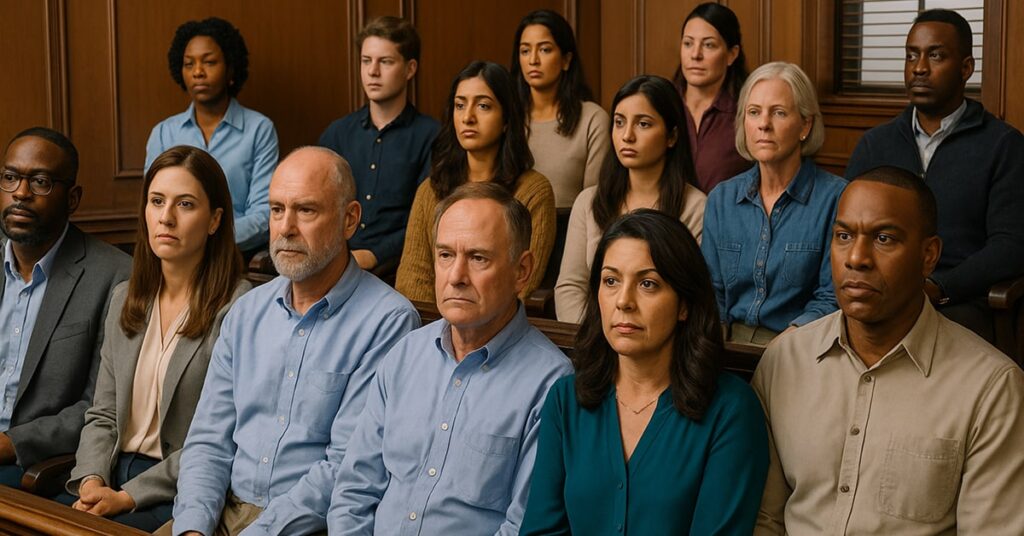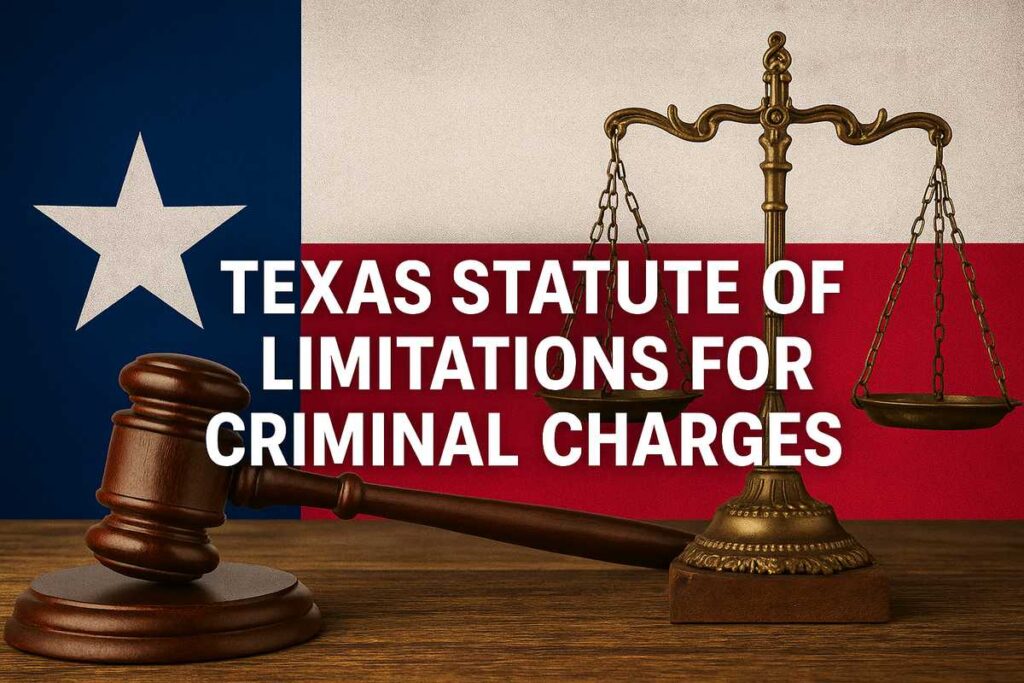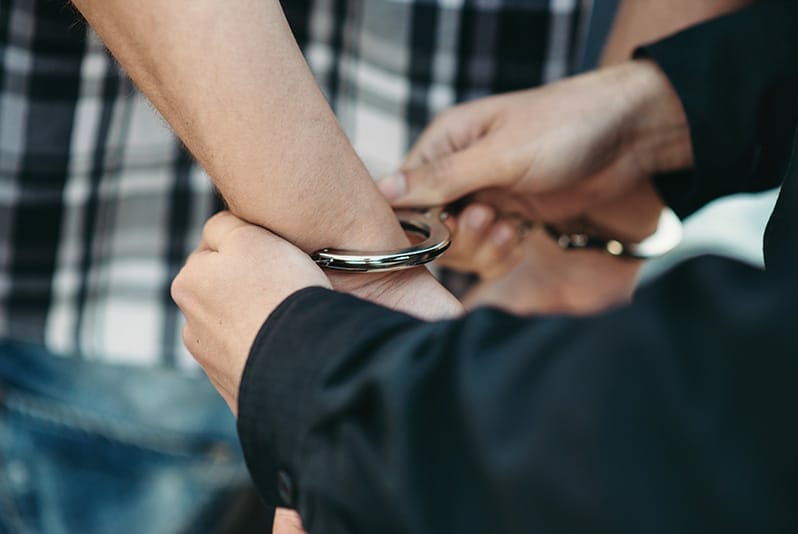What to Expect During Jury Selection in Houston

Jury selection sets the tone for a trial. In Houston, the jury selection process is called voir dire. Judges and lawyers question prospective jurors from the jury pool. The goal is simple: seat an impartial jury who can decide only on the evidence.
This guide explains how potential jurors move from summons to the jury box, how peremptory challenges and challenges for cause work, and how your defense attorney uses the Code of Criminal Procedure to protect your rights during this part of the trial process in Harris County courts.
Why Jury Selection Matters
Jurors decide facts and credibility. Jurors apply the judge’s instructions. A fair and impartial jury is the foundation of a fair trial. If you face charges in Houston, the quality of the jury panel can shape the result as much as any piece of evidence.
Herman Martinez, a former Harris County Chief Prosecutor and long-time Houston defense attorney, has handled voir dire in felony and misdemeanor cases across Midtown, The Heights, Gulfton, Pasadena, Katy, Clear Lake, and Sugar Land. That local experience helps identify bias and use peremptory challenges effectively to protect clients.
From Summons to Assembly: What Happens First
Your summons and pre-arrival steps
- Randomly selected names come from voter and driver license lists.
- Complete your juror questionnaire online or by mail.
- Check reporting instructions the evening before. Some panels get canceled.
- If you need to reschedule, follow the directions on the summons.
Where to report downtown
- Jury Assembly Room: El Franco Lee Public Service Plaza, 1201 Congress.
- Validated parking is usually available at 1401 Congress.
- Expect security screening like an airport checkpoint.
What to bring and wear
- Government ID, your summons, a light jacket, water, and a snack.
- Business-casual clothing is best. Courtrooms can be cold.
- Free Wi-Fi is common; bring a book or tablet. Many jurors are dismissed before noon.
Related reading for courthouse locations and divisions: Where Will My Houston DWI Case Be Heard.
Qualifications, Exemptions, and Hardships
You must be at least 18, a U.S. citizen, and a resident of the county. You must be able to read and write. Some exemptions apply, such as age, student status, or primary caregiver duties.
Judges also hear hardship requests. Always answer questions truthfully. You will take an oath. Serving on a jury is a civic duty protected by both the Texas Constitution and the Constitution of the United States.
Moving From Pool to Panel
If your number is called, you and a group of potential jurors go to a specific district court courtroom. The judge gives brief instructions and swears in the panel.
The judge introduces the lawyers and identifies the parties. No evidence is offered yet. This is setup for questioning.
Voir Dire: The Questioning Phase
Purpose of voir dire
- Confirm that each juror can follow the presumption of innocence.
- Confirm that each juror can require the State to prove guilt beyond a reasonable doubt.
- Reveal any bias, prior knowledge of the case, or connections to the parties or witnesses.
- Confirm that each juror will obey the judge’s instructions even if they disagree with a law.
Common topic areas
- Background: job, family, neighborhood, prior jury service.
- Experience with law enforcement or the justice system.
- Views about witness credibility, forensics, or constitutional rights.
- Ability to decide based only on evidence admitted in court.
Sample questions you may hear
- Do you or a close family member work for a police department, sheriff’s office, or law firm?
- Have you or a family member been a victim, accused, or convicted in a criminal case?
- Can you presume the defendant innocent and hold the State to its burden of proof?
- Can you follow instructions even if you disagree with them?
Privacy note: If a question involves personal experiences that are sensitive, you may ask to answer at the bench.
Jury Challenges in Harris County
During voir dire, lawyers may remove prospective jurors through two tools. Both tools exist to protect the right to a fair jury under the Code of Criminal Procedure and the Constitution.
Challenges for cause (no limit if the judge agrees)
A lawyer may ask the judge to excuse a juror who cannot be fair or cannot follow the law. Examples include clear bias, close relationships with parties or witnesses, prior knowledge that cannot be set aside, or inability to read or write. The judge decides each request.
Peremptory challenges (limited number)
Each side may remove a limited number of jurors without stating a reason. However, these strikes cannot be used for discriminatory reasons. If one side believes the other used a strike based on race, ethnicity, or gender, they can raise a Batson challenge. The court will then require a race neutral explanation, as required by the States Supreme Court decision in Batson v. Kentucky.
Jury shuffle (Houston practice tip)
Before questioning starts, either side may request a one-time random reshuffle of the panel’s seating order. Lawyers use this tool when the front of the panel appears unbalanced.
Selection, Oath, and Trial Start
After challenges, the clerk seats the jury. Felony juries have 12 members; misdemeanor juries have 6. Courts may seat alternates. The judge administers the oath to try the case fairly and follow the law.
The judge sets daily schedules and reminds jurors of conduct rules: no research, no social media, and no discussions about the case until deliberations. This is your moment of officially serving on a jury.
What Defendants Should Know
Your defense attorney prepares for voir dire with a plan. The plan targets the case issues that matter. For example, a DWI case in Montrose may focus on field sobriety testing and officer credibility.
A family-violence case in Spring Branch may focus on witness relationships and memory. During questioning, your lawyer watches juror reactions, follows up on concerns, and protects you with timely peremptory challenges and challenges for cause.
Your input helps. You can quietly note juror reactions and share them with your lawyer. You know the neighborhoods and the facts of your life. That insight matters.
Houston-Focused Tips for Jurors and Defendants
- Plan for rush hour near the Downtown courthouses.
- Parking garages fill up early; leave time for security lines.
- Bring a jacket; rooms can be cold.
- Expect waiting; do not bring prohibited items like knives or pepper spray.
- Many summoned jurors are released before lunch. If you stay for a panel, the process can run into the afternoon.
Neighborhoods we often see on panels include Downtown, Midtown, The Heights, East End, West U, Sharpstown, Cypress, Pasadena, Clear Lake, and Katy. Panels reflect Harris County’s size and diversity. That diversity is a strength when jurors follow the law.
Myths and Realities
- Myth: Lawyers pick jurors who promise a verdict.
- Reality: The law forbids that. Lawyers seek jurors who can be fair in this case.
- Myth: Strong opinions always disqualify me.
- Reality: Opinions are fine if you can set them aside and follow the judge’s instructions.
- Myth: Peremptory strikes can be used for any reason.
- Reality: Discriminatory strikes violate Batson and can be reversed.
Where Voir Dire Fits in the Criminal Trial Process
Sequence: Summons → Assembly → Jury pool → Panel → Voir dire → Challenges → Jury sworn → Openings → Evidence → Jury instructions → Deliberations → Verdict. In some cases, the court then holds a separate hearing on punishment.
For what comes after a verdict, see Sentencing: What to Expect.
Day-of Checklist (Save or Screenshot)
- ✔ Check reporting instructions the night before.
- ✔ Bring ID, summons, jacket, water, snack.
- ✔ Dress business-casual.
- ✔ Plan for parking and security lines.
- ✔ Be ready to answer questions honestly.
- ✔ Ask to approach the bench for sensitive topics.
- ✔ Do not research or post about the case.
- ✔ Keep an open mind until deliberations.
FAQs
How long does jury selection Houston usually take?
Many panels finish before noon. Some take the afternoon. Complex felonies in district court can take longer.
Can I be excused if I know a witness or location?
Maybe. The judge decides if that knowledge creates bias. You must disclose it.
How many peremptory strikes does each side get?
It depends on the charge level and whether alternates are seated. The number is fixed by statute.
What is a Batson challenge?
It is an objection that a peremptory strike was used for a discriminatory reason. The court can require a race neutral explanation and can reseat the juror if needed.
Can I talk about the case with family?
No. Do not discuss the case until deliberations and only with fellow jurors.
What happens if a juror gets sick mid-trial?
The court may use an alternate. If there is no alternate, the court will decide next steps under Texas law.
Why Choose The Martinez Law Firm for Voir Dire
Herman Martinez brings years as a former prosecutor, experience as an Associate Judge for the City of Houston, and a long record as a Houston trial lawyer. He understands how the State builds a panel and how to protect clients from bias. He appears in Harris County courts daily and helps clients across Midtown, The Heights, Pasadena, Katy, Sugar Land, Spring, and Clear Lake.
If you need a team that prepares, listens, and acts fast during voir dire, we are ready to help.
Glossary (Plain English)
- Voir dire: The questioning of potential jurors to test fairness and fitness to serve.
- Challenge for cause: A request to excuse a juror who cannot be fair or follow the law; unlimited if the judge agrees.
- Peremptory challenge: A limited strike used without stating a reason, subject to anti-discrimination rules.
- Batson challenge: An objection claiming a peremptory strike was discriminatory; requires a race neutral explanation.
- Jury shuffle: A one-time request to randomly reseat the panel before questioning begins.
Final Note
This guide explains the process so you know what to expect. Every case is different. If you face charges and need help with voir dire or any other step of the criminal trial process Texas, call The Martinez Law Firm for a confidential consult. We will review your case, prepare a strategy, and guide you through each step—starting with the jury.






